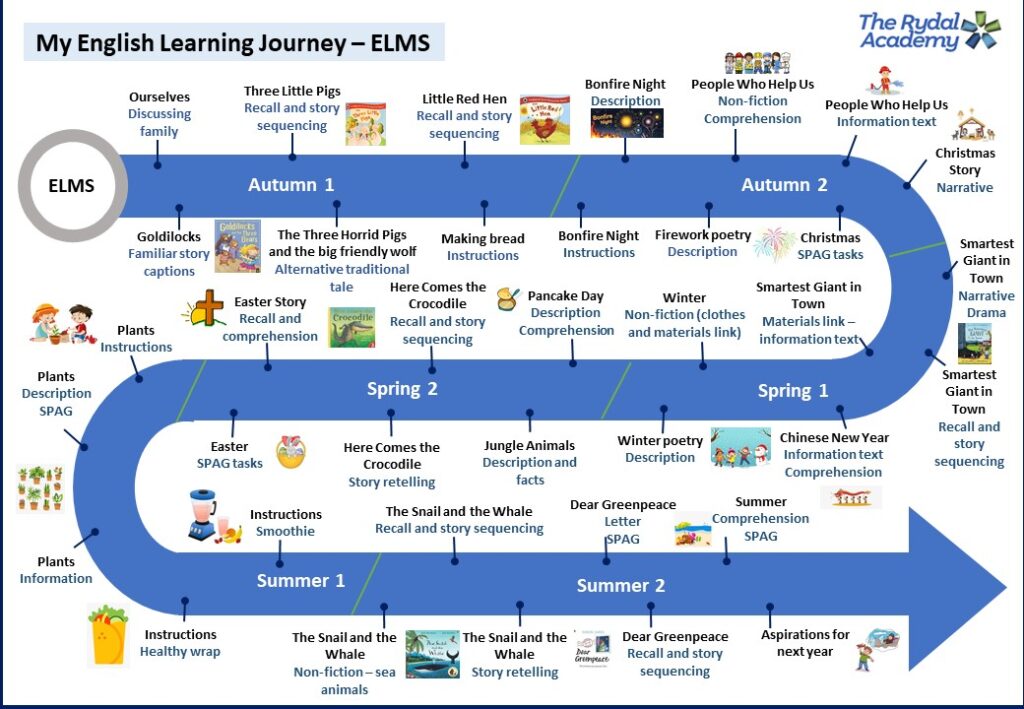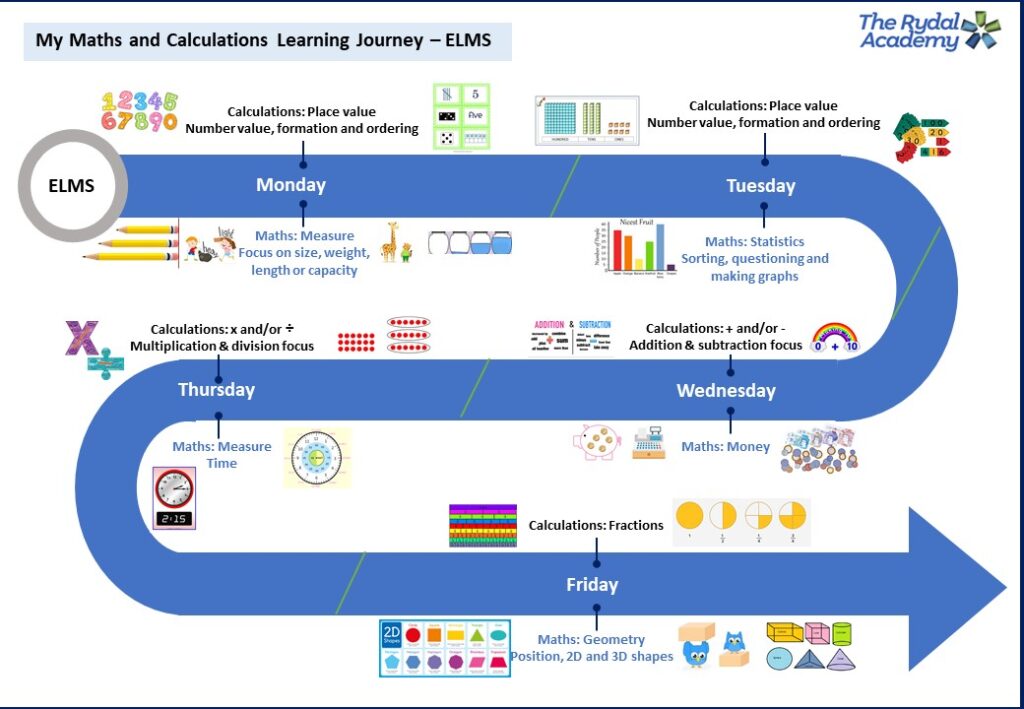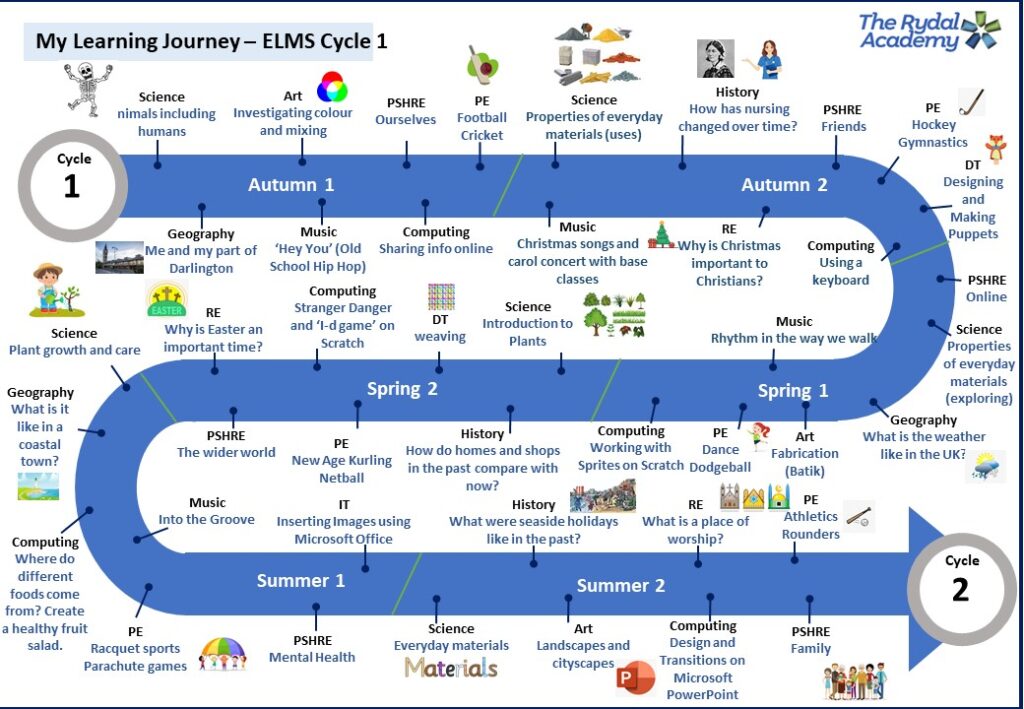Leader: Mrs King
At The Rydal Academy our Enhance Learning and Mentoring Support (ELMS) class is a school provision to support children with Education Health Care Plans (EHCPs) or on the EHCP pathway who are working below their Key Stage curriculum and require an increased level of adult support to access an appropriate curriculum.
Our ELMS curriculum provides a broad and balanced curriculum, underpinned by a thorough knowledge of each individual pupil, their strengths, needs and how they learn. The intent of the curriculum offer is to introduce pupils to a range of learning experiences to enable them to achieve rapid progress in their learning, become more independent individuals and develop skills needed in later life.
Within ELMS class our curriculum is organised into two pathways:
· Formal curriculum pathway
· Life skills pathway
Our curriculum is adapted and modified from the pre-Key Stage Curriculum and National Curriculum and is accessible, meaningful and relevant to all pupils. Every lesson is planned to be challenging, enjoyable and provide opportunities for success for each child.
Children working within National Curriculum expectations follow our Formal Curriculum. This curriculum incorporates the statutory requirements of the National Curriculum 2014 and other experiences and opportunities which best meet the learning and developmental needs of the pupils in our class. The aim of our formal curriculum is for pupils to develop the skills to be successful, independent and motivated learners in readiness for the next stage of their education.
Children working pre-National Curriculum follow a life skills pathway. This curriculum incorporates learning core skills in reading, writing and maths and provides pupils with daily opportunities to work on language, interactions, social skills and independence. All play and learning activities are planned to meet the learning and developmental needs of the individual pupils. Like the formal curriculum, the aim of the Life skills Curriculum is for pupils to develop the skills needed to be successful and independent learners, with the strategies and skills required to communicate and interact with others in readiness for the next stage in their education.
Pupils follow the pathway that is appropriate to their needs and level of attainment. All pathways are delivered in a cycle; termly topics within each pathway have a similar overarching theme. This allows some pupils to work flexibly between the two pathways.
English Learning Journey

Maths Learning Journey

Science and Foundation Subjects Learning Journey



